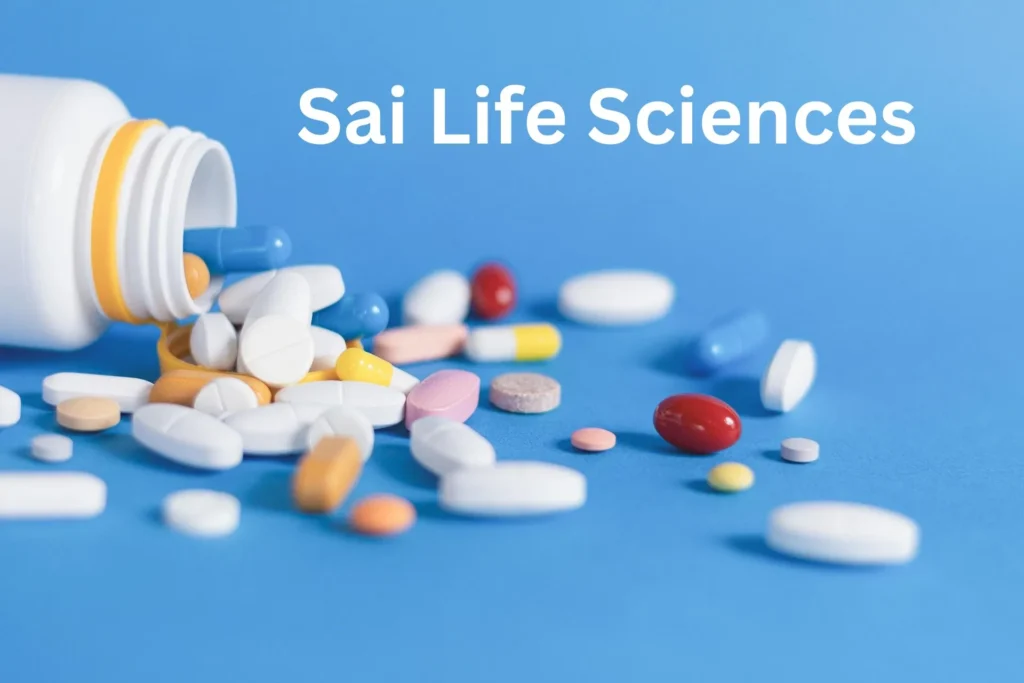Sai Life Sciences, a fast-growing Indian Contract Research, Development, and Manufacturing Organization (CRDMO), is steadily carving out a global footprint in the pharmaceutical services sector. With integrated offerings spanning discovery, development, and commercial manufacturing, the company is well-positioned to capitalize on structural tailwinds such as global supply chain diversification and demand for high-quality outsourcing partners. But is Sai Life Sciences a good long-term investment? This article explores the company’s growth strategies, future outlook, challenges, and key advancements to help you make that call.

Growth Strategy: Expanding Deep and Wide
Sai Life Sciences is pursuing a multi-pronged growth strategy centered around three pillars:
Integrated CRDMO Model
Sai’s biggest differentiator is its integrated CRDMO business model. By offering end-to-end support—from early drug discovery to commercial API manufacturing—it provides a seamless experience for clients. This integration not only improves customer stickiness but also enables participation across the drug development lifecycle.
Capacity and Capability Expansion
In FY25, Sai added significant manufacturing capacity with two new units and ramped up its R&D strength, increasing capacity by 30%. The company plans to invest ₹700 crore in FY26, with 60–65% allocated to manufacturing and 35–40% to R&D and new modalities (like peptides, ADCs, and oligonucleotides).
Customer Base Diversification
Sai now serves 18 of the top 25 global pharma companies, with a notable 37% of its CRO business coming from large pharma clients. Its rising focus on global markets, including the US, UK, EU, and Japan, ensures reduced reliance on any single geography.
Future Outlook: Steady Growth and Sectoral Advantage
Despite a volatile global funding environment—especially for biotech firms—Sai Life Sciences expects strong long-term growth due to:
- Supply Chain Shifts from China to India: Ongoing “China+1” strategies are causing global pharma giants to seek reliable partners in India, which boasts cost efficiency and scientific talent.
- Increased Pharma Investment in India: Sai sees increased engagement with large pharma clients, many of whom are building long-term capacity in India.
- Peptides & New Modalities: By investing early in a dedicated Peptide Research Center and capabilities for other emerging modalities, Sai is future-proofing itself to meet evolving client needs.
Financial Guidance:
- Revenue CAGR guidance of 15–20% over 3–5 years.
- EBITDA margin expected to rise from current 25% to 28–30% in the next 2–3 years.
- ROCE targeted in the mid-to-high teens, improving from 12% in FY25.
Key Advancements: Innovation and Sustainability
Peptide Research Center
A state-of-the-art facility launched in Hyderabad to support complex peptide synthesis, complete with automation and high-throughput capabilities.
Digital & Green Transformation
Sai joined DHL’s “Go Green Plus” initiative and has integrated digital tools to improve efficiency and reduce emissions—supporting its ESG goals.
Talent & Recognition
The company hired high-quality scientific talent across functions and was certified as a “Great Place to Work” for FY25–26, underscoring its focus on culture and capability.
Challenges to Watch
While Sai’s prospects are bright, investors should note some industry and company-specific challenges:
Cyclicality and Lumpy Revenue
Drug development cycles are long and unpredictable, making quarterly performance volatile. For example, EBITDA margin in Q1 FY25 was just 9%, while the full-year margin was 25%.
Client Funding Risk
Although current biotech clients are well-funded, global biotech funding remains under pressure. This can impact project volumes in the CRO segment.
Execution Risks with Capex
Capex plans of ₹700 crore in FY26 are ambitious. While most is earmarked for FY27 readiness, delays or cost overruns could affect returns in the medium term.
Is Sai Life Sciences a Good Investment?
The Bull Case:
- Unique positioning as a fully integrated CRDMO
- Strong execution record (105% YoY PAT growth in FY25)
- Long-term tailwinds from global pharma’s India pivot
- Focus on sustainability, talent, and customer-centricity
The Bear Case:
- Revenue visibility limited by inherent unpredictability of drug pipelines
- Exposure to funding-sensitive biotech sector
- High capex intensity can suppress return ratios temporarily
Verdict:
For long-term investors seeking exposure to India’s booming pharma services sector, Sai Life Sciences presents a compelling, high-potential opportunity. While not without risks, the company’s robust fundamentals, forward-looking strategy, and expanding global partnerships make it a worthy consideration for patient capital.
Info Section: Key Technical Terms Explained
| Term | Meaning |
|---|---|
| CRDMO | Contract Research, Development & Manufacturing Organization—offers end-to-end services from drug discovery to manufacturing. |
| CDMO | Contract Development & Manufacturing Organization—focuses on development and large-scale manufacturing. |
| CRO | Contract Research Organization—provides services related to preclinical and clinical drug discovery. |
| EBITDA | Earnings Before Interest, Taxes, Depreciation, and Amortization—a profitability metric. |
| FTE | Full-Time Equivalent—used to measure CRO contracts based on scientist hours dedicated to a project. |
| ROCE | Return on Capital Employed—shows how efficiently a company generates profits from its capital. |
| Peptides, ADCs, Oligos | Advanced drug modalities. Peptides are small proteins; ADCs (Antibody-Drug Conjugates) target cancer; oligonucleotides are short DNA or RNA molecules used in genetic medicine. |

I really like your blog.. very nice colors & theme.
Did you design this website yourself or did you hire someone to do it for you?
Plz reply as I’m looking to create my own blog and would like to know where u got this
from. appreciate it
contact in suryapanda775@gmail.com